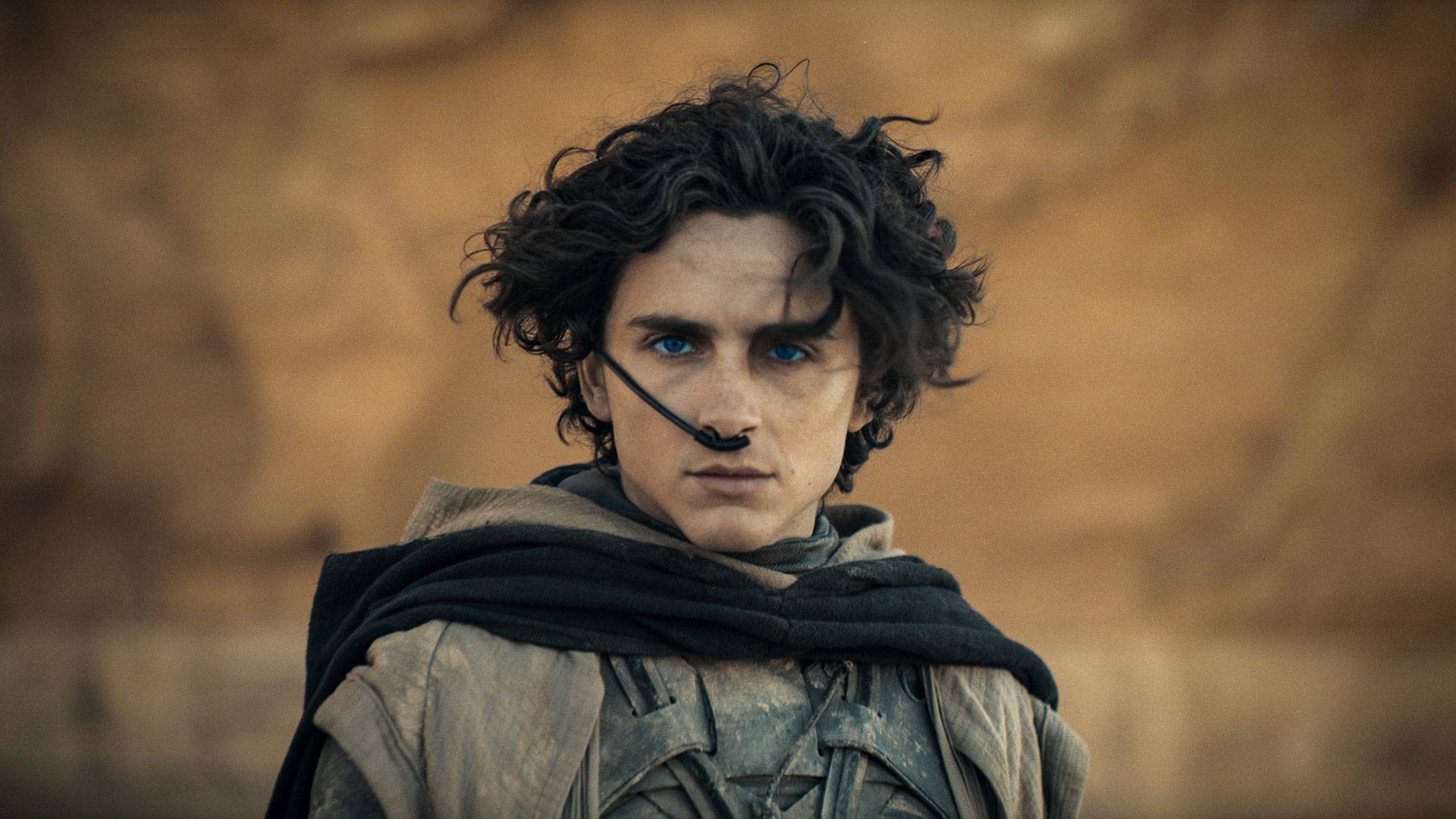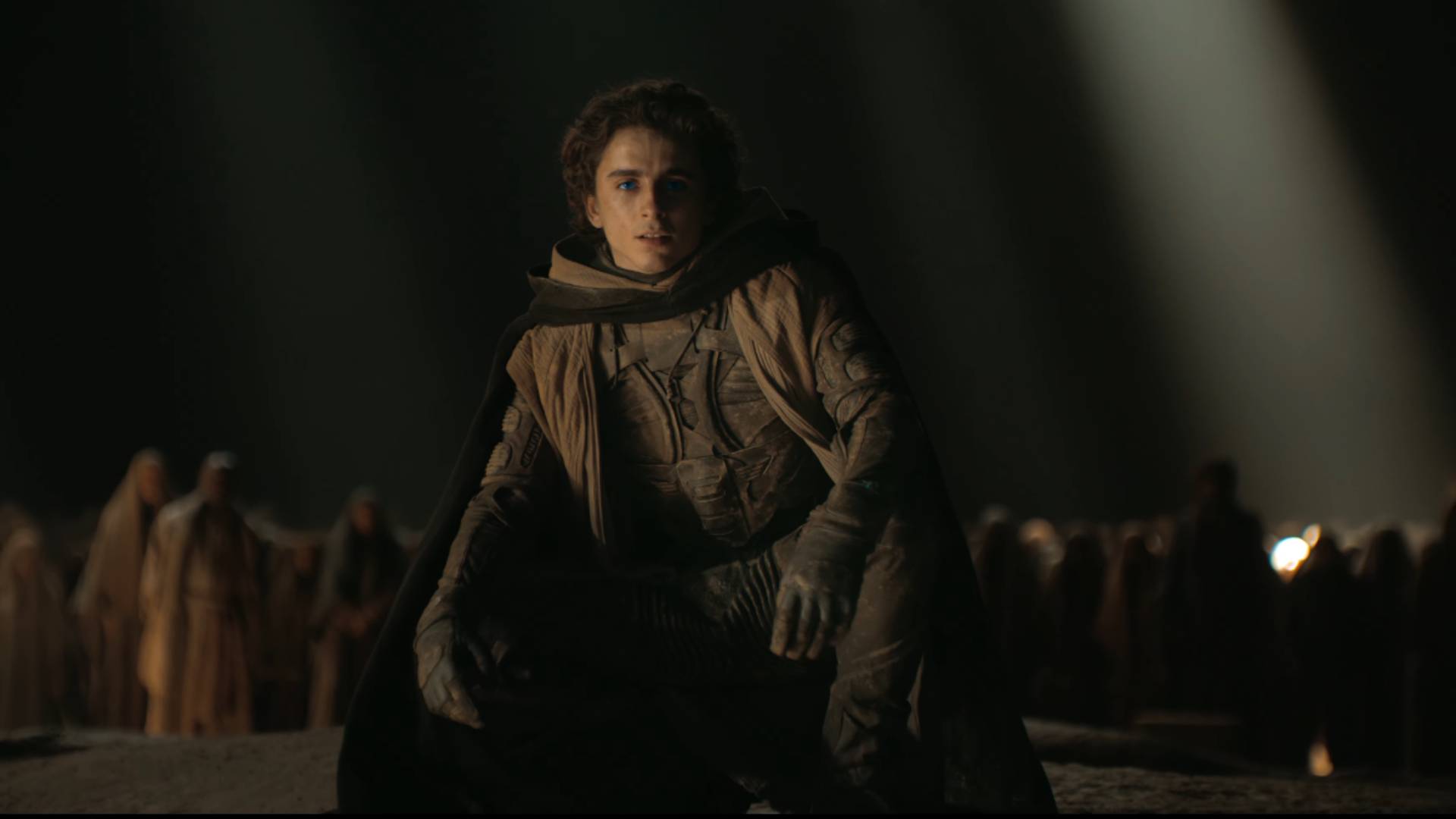
Has Denis Villeneuve’s road always been leading into Frank Herbert’s desert? In 1998, his debut August 32nd on Earth showed a poetic feel for character and sandy landscapes; fish-eyed follow-up Maelström, meanwhile, revealed a surreal flair. His clout as an action director emerged later, but be assured: with outsized pomp, punch and weirding business, Part Two positions his Dune duology as one of the great mind-melds of director to material in modern fantasy filmmaking.
Blockbuster as grand tragedy? War movie as political, psychological and romantic fable? Sci-fi spectacle as colonial, conspiratorial allegory? However you cut it, Villeneuve wrangles coherence from Herbert’s unruly elements to deliver a sequel that ranks alongside The Dark Knight, The Empire Strikes Back – and Blade Runner 2049. No mere expansion pack for the dreamier Part One, it’s a completion (maybe…) of a story that might have appeared misleading, certainly incomplete, without it.
The action picks up shortly after Part One’s finale. Their people massacred by House Harkonnen, Paul Atreides (Timothée Chalamet) and his mother Jessica (Rebecca Ferguson) join the Fremen, who live as one with the sandy, spicy planet Arrakis. As Paul mourns his father and bonds with Fremen scrapper Chani (Zendaya), he has nightmares of grim destiny and a blood-soaked holy war. Will he convert his Fremen doubters and become the messianic Muad’Dib, as prophesied?
Following the Harkonnens’ deadly coup, the Baron (Stellan Skarsgård) hears of a new leader rallying the Fremen to disrupt production of spice, the mystical unobtanium of Arrakis. Oozing cruelty, the Baron channels his grump into indiscriminate strikes against these rebels. Meanwhile, his psychotic nephew and heir Feyd-Rautha (Austin Butler) skulks and schemes on the sidelines, beady-eyed and murderous with anyone who, you know, looks at him a bit funny.
With the stage set for multi-tiered conflict, Villeneuve delivers with forceful style. Part Two is an inarguable marvel technically, almost leaving its Oscar-grade predecessor for dust. Hypnotic and horrifying images mount, from the graceful spectacle of soldiers floating above the sand for safety to their slamming thud as they fall, dead. A raid on a spice depot offers a startling show of visceral conflict made tangible and clear; ornithopters swarm like insects in an airborne stand-off; and Paul’s worm-surfing ride of passage roars with heart-in-mouth, sand-in-everything dread and awe.
The sound mix is a character in itself too, thumping your torso while Hans Zimmer’s ecstatic score matches sand, architecture and machinery for wonder, scale and impact. This is maximalist filmmaking made artful and immersive, wild and weighted, trippy and textured. And again, DoP Greig Fraser rules the desert, honoring legendary cinematographer Freddie Young’s (Lawrence of Arabia) spirit majestically.

Equally, Dune 2 honors Herbert in terms of ideas. Themes of fundamentalist zealotry and blind fealty to leaders with awesome hair are less subtexts than surface texts, twisting ‘chosen one’ conventions into intriguing shapes. Hints of satire show, such that you half expect someone to say, "He’s not the messiah, he’s a very…". Smartly, Part Two recognizes the leavening worth of humor in the abyss, thanks notably to Javier Bardem’s impish turn as Fremen leader Stilgar – mind those ‘little’ desert centipedes, indeed.
Among an outrageously well-appointed cast, Ferguson remains a potent presence as Jessica’s mystique grows. Christopher Walken and Florence Pugh suggest complex histories despite limited screen time as, respectively, the Padishah Emperor and his daughter Princess Irulan. Should all that sound too subtle, Dave Bautista is a brusque riot as the Harkonnen Beast, smashing lackeys’ skulls in like Drax with a cob on.
But the lead trio shine brightest. Zendaya invests feeling in a character smartly built up from Herbert’s vision. Exchanging hoverchocs for hallucinogenic worm bile, Chalamet blossoms in tandem with Paul, showing previously untapped reserves of command. And post-Presley, Butler oozes toxic trouble as the smirking Feyd-Rautha, a soul-blackened villain for the ages who enjoys killing on his birthday like most people enjoy cake. Even if his voice sounds a bit like Kevin from The (US) Office.
Smartly, Villeneuve and co-writer Jon Spaihts punch up Feyd-Rautha’s fights from the book, notably in a bleached-out gladiatorial throwdown on Giedi Prime. Elsewhere, some of Herbert’s ideas are judiciously teased out and others dampened without diluting the novel’s fever pitch. The Bene Gesserit’s movements are developed, aided by Léa Seydoux’s stealthy manifestations. A starry dream cameo and the most strategic fetus since Prevenge also offer bold, skewed reinventions of a character who seemed a bit daft in Lynch’s Dune.
The climax here is sharply judged, sustaining what worked on page while making the outcome more discomforting. It’s a finale that might throw off anyone unfamiliar with Herbert, or anyone expecting conventional pay-offs. But it does answer the story’s themes and, tantalizingly, leave room for more. Could Herbert’s trippy Dune Messiah be adapted next, as teased? Tall order, that. But on the strength of this extravagantly, rigorously realized vision, make no mistake: Villeneuve is the man to see a way through that delirious desert storm.
Dune 2 arrives in cinemas on March 1.
For more, check out our guide to the best sci-fi movies of all time.







